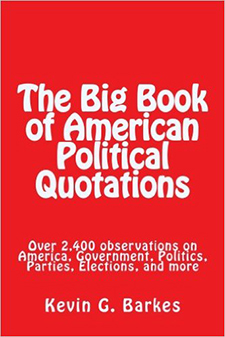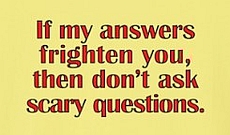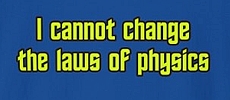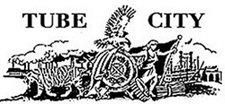Ira Handelsman, my high school English teacher, introduced me to the works of many authors who still influence me. The writer with the greatest impact- even more than James Thurber- was E.B. White, specifically due to this marvelously concise satire. Written in 1938, it's still relevant- and hysterical.
IRTNOG
by E.B. White
Along about 1920 it became apparent that more things were being written than people had time to read. That is to say, even if a man spent his entire time reading stories, articles, and news, as they appeared in books, magazines, and pamphlets, he fell behind. This was no fault of the reading public; on the contrary, readers made a real effort to keep pace with writers, and utilized every spare moment during their walking hours. They read while shaving in the morning and while waiting for trains and while riding on trains. They came to be a kind of tacit agreement among numbers of the reading public that when one person laid down the baton, someone else must pick it up; and so when a customer entered a barbershop, the barber would lay aside the Boston Evening Globe and the customer would pick up Judge; or when a customer appeared in a shoe-shining parlor, the bootblack would put away the racing form and the customer would open his briefcase and pull out The Sheik. So there was always somebody reading something. Motormen of trolley cars read while they waited on the switch. Errand boys read while walking from the corner of Thirty-ninth and Madison to the corner of Twenty-fifth and Broadway. Subway riders read constantly, even when they were in a crushed, upright position in which nobody could read his own paper but everyone could look over the next man s shoulder. People passing newsstands would pause for a second to read headlines. Men in the back seats of limousines, northbound on Lafayette Street in the evening, switched on tiny dome lights and read the Wall Street Journal. Women in semi-detached houses joined circulating libraries and read Vachel Lindsay while the baby was taking his nap.
There was a tremendous volume of staff that had to be read. Writing began to give off all sorts of by-products. Readers not only had to read the original works of a writer, but they also had to scan what the critics said, and they had to read the advertisements reprinting the favorable criticisms, and they had to read the book chat giving some rather odd piece of information about the writer such as that he could write only when he had a gingersnap in his mouth. It all took time. Writers gained steadily, and readers lost.
Then along came the Reader's Digest. That was a wonderful idea. It digested everything that was being written in leading magazine, and put new hope in the hearts of readers. Here, everybody thought, was the answer to the problem. Readers, badly discouraged by the rate they had been losing ground, took courage and set out once more to keep abreast of everything that was being written in the world. For a while they seemed to hold their own. But soon other digests and short cuts appeared, like Time, and The Best Short Stories of 1927, and the new Five-Foot Shelf, and Well's Outline of History, and Newsweek, and Fiction Parade. By 1939 there were one hundred and seventy-three digests, or short cuts, in America, and even if a man read nothing but digests of selected material, and read continuously, he couldn't keep up. It was obvious that something more concentrated than digests would have to come along to take up the slack.
It did. Someone conceived the idea of digesting the digests. He brought out a little publication called Pith, no bigger than your thumb. It was a digest of Reader's Digest, Time, Concise Spicy Tales, and the daily news summary of the New York Herald Tribune. Everything was so extremely condensed that a reader could absorb everything that was being published in the world in about forty-five minutes. It was a tremendous financial success, and of course other publications sprang up, aping it: one called Core, another called Nub, and a third called Nutshell. Nutshell folded up, because, an expert said, the name was too long; but half a dozen others sprang up to take its place, and for another short period readers enjoyed a breathing spell and managed to stay abreast of writers. In fact, at one juncture, soon after the appearance of Nub, some person of unsound business tendencies felt that the digest rage had been carried too far and that there would be room in the magazine field for a counterdigest, a publication devoted to restoring literary bulk. He raised some money and issued a huge thing called Amplifo, undigesting the digests. In the second issue the name had been changed to Regurgitans. The third issue never reached the stands. Pith and Core continued to gain, and became so extraordinarily profitable that hundreds of other digests of digests came into being. Again readers felt themselves slipping. Distillate came along, a superdigest which condensed a Hemingway novel to the single word "Bang!" and reduced a long article about the problem of the unruly child to the words "Hit him."
You would think that with such drastic condensation going on, the situation would have resolved itself and that an adjustment would have been set up between writer and reader. Unfortunately, writers still forged ahead. Digests and superdigests, because of their rich returns, became as numerous as the things digested. It was not until 1960, when a Stevens Tech graduate named Abe Shapiro stepped in with and immense ingenious formula, that a permanent balance was established between writers and readers. Shapiro was a sort of Einstein. He had read prodigiously; and as he thought back over all the things that he had ever read, he became convinced that it would be possible to express them in mathematical quintessence. He was positive that he could take everything that was written and published each day, and reduce it to a six-letter word. He worked out a secret formula and began posting daily bulletins, telling his result. Everything that had been written during the first day of his formula came down to the word IRTNOG. The second day, everything reduced to EFSITZ. People accepted these mathematical distillations; and strangely enough, or perhaps not strangely at all, people were thoroughly satisfied, which would lead one to believe that what readers really craved was not so much the contents of books, magazines, and papers as the assurance that they were not missing anything. Shapiro found that his bulletin board was inadequate, so he made a deal with a printer and issued a handbill at five o clock every afternoon, giving the Word of the Day. It caught hold instantly.
The effect on the populace was salutary. Readers, once they felt confident that they had one-hundred-per-cent coverage, were able to discard the unnatural habit of focusing their eyes on words every instant. Freed of the exhausting consequences of their hopeless race against writers, they found their health returning, along with a certain tranquility and a more poised way of living. There was a marked decrease in stomach ulcers, which, doctors said, had been the result of allowing the eye to jump nervously from one newspaper headline to another after a heavy meal. With the dwindling of reading, writing fell off. Forests which had been plundered for newsprint, grew tall again; droughts were unheard of; and people dwelt in slow comfort, in a green world.
Categories: E.B. White, Ira Handelsman
![]() Subscribe
[Home]
[Commentwear]
[E-Mail KGB]
Subscribe
[Home]
[Commentwear]
[E-Mail KGB]
Older entries, Archives and Categories Top of page

















